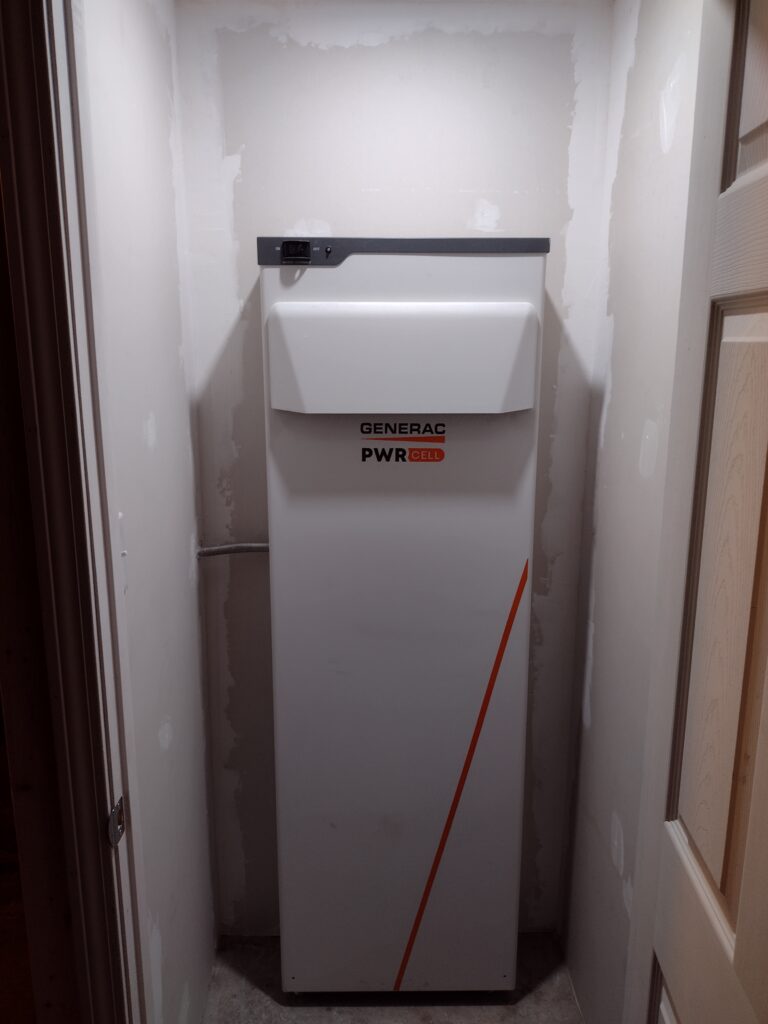A residential solar battery for a solar panel system can play a massive role in taking your system to the next level. Storing excess power instead of sending it to the grid allows you to have access to a variety of different options as to what you can do with your generated solar energy. In cases of grid failure and a need for electricity or if you just want to make use of sun shifting (save money that would go to the grid and use stored solar energy on a cloudy day), having a battery allows you to still have access to certain necessities in the house. While you can’t necessarily fully charge your Tesla or other electric cars with it, it can allow you to run your refrigerator and keep your lights on.
However, while residential solar batteries can be incredibly beneficial, they don’t last forever. Each one has a lifespan and will eventually have to be replaced. The question becomes, of course, exactly how long will they last? 
In order to answer the question of how long a battery will last, we can start by taking a look at different battery types. Three common types you will see are lead-acid batteries, saltwater batteries, and the lithium-ion family of batteries. While lead-acid and saltwater batteries are often cheaper, the lithium-ion family of batteries will have a longer lifespan on average as well as a higher DoD capacity (depth of discharge, or how much capacity of the battery energy used in a given cycle). Having a higher DoD allows you to use more of your battery’s capacity safely and is part of why the battery has a longer lifespan. As a result, both of the batteries we recommend below are from the lithium-ion family of batteries!
The next aspect of understanding battery lifespan requires looking at battery “cycles”. When we say “cycle,” we’re referring to the process of a battery charging and discharging once. Residential solar batteries can only go through that process so many times before beginning to deteriorate in capacity. And not surprisingly, the number of cycles a battery can handle plays directly into the battery’s warranty. While warranties are often stated in years in the marketing brochure, the details of the warranty defines the warranty term by a maximum number of cycles.
This is also where the aforementioned DOD comes in! Residential solar batteries that are only discharged to a certain percentage of their capacity in each cycle last longer, especially when you leave more energy in your battery. As a result, having a higher DOD capacity is better for your battery’s lifespan.
So taken together, the short answer to our original question is that generally, solar batteries are known to last anywhere between five and 15 years. The two residential solar batteries that New England Clean Energy recommends the most are the LG Home 8 battery and the Enphase 5P battery. That’s not to say that more “well-known” brands such as Tesla and Generac are poor options, but New England Clean Energy Inc has found that the two we recommend fit the needs of our clients best and are unique in different ways! Each of the LG and Enphase batteries come with a 10-year warranty . So, if used in the most typical fashion, you can expect to have to replace your battery in the aforementioned 5 – 15-year timeframe, varying depending on your own battery usage .
 While knowing your battery’s expected lifetime is important, it’s even more crucial that you keep an eye on and tabs on how your battery is performing. A common and easy-to-notice indicator of your battery reaching replacement time is its performance, and how much energy it can store and discharge. If you notice that your battery is struggling to perform or hold a charge compared to what it used to, it may be time to begin looking into getting a replacement. The last thing you want is to be left without enough electricity when you need it as a result of an old battery!
While knowing your battery’s expected lifetime is important, it’s even more crucial that you keep an eye on and tabs on how your battery is performing. A common and easy-to-notice indicator of your battery reaching replacement time is its performance, and how much energy it can store and discharge. If you notice that your battery is struggling to perform or hold a charge compared to what it used to, it may be time to begin looking into getting a replacement. The last thing you want is to be left without enough electricity when you need it as a result of an old battery!
When the end of your residential solar battery’s lifespan comes, you’ll want the best support possible in replacing it. Knowing when you need a replacement and how to approach that process can be difficult to navigate. Which is why we at New England Clean Energy Inc are here to help! Our team of skilled and knowledgeable professionals can provide you with the support you need in order to make sure your battery and system are performing at their best.
Whether you have a battery for your solar system already, or you’re looking to add one to your existing system, we have you covered.
To get started working with our crew, visit our consultation set up here: https://newenglandcleanenergy.com/get-a-quote/





No comments yet. You should be kind and add one!
By submitting a comment you grant The Energy Miser a perpetual license to reproduce your words and name/web site in attribution. Inappropriate and irrelevant comments will be removed at an admin’s discretion. Your email is used for verification purposes only, it will never be shared.